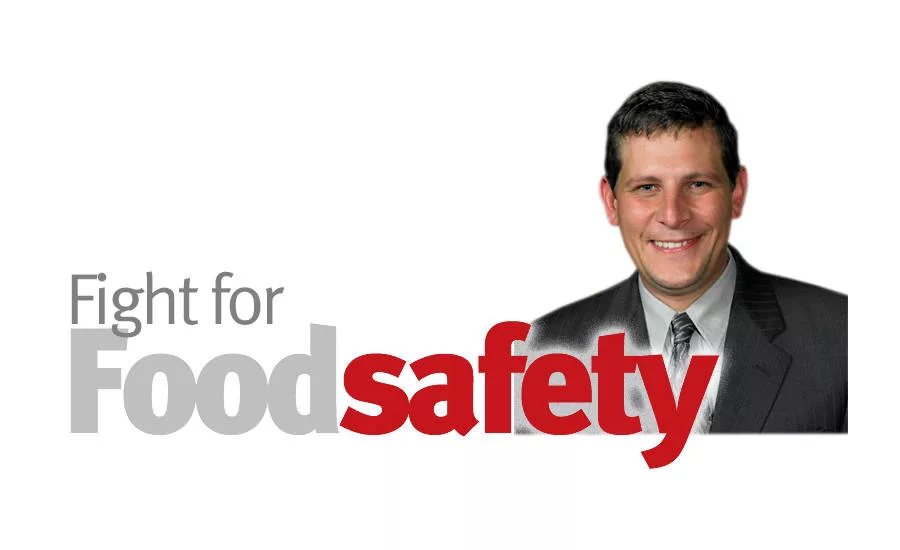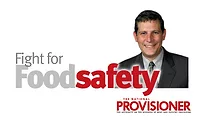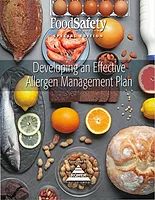Fight for Food Safety
Developing an effective Food Defense Program (FDP)
Defending against the unthinkable

Although deliberate attacks on our food supply are rare, the consequences are potentially catastrophic and go beyond injury or death. Consequences may include profound economic damage, loss of consumer confidence and widespread public fear. In recognition of the risks, FSIS encourages establishments to voluntarily adopt and implement a Food Defense Plan (FDP), and to conduct training and exercises to ensure preparedness. The following four-pronged approach offers guidance for developing an effective food defense program.
Step 1: Develop (or reassess) an FDP. Creating or reassessing the FDP entails assessing vulnerabilities and developing cost-effective mitigation measures. The FDP should be documented and include security measures for at least the following: water, ice, receiving, storage, processing and shipping. Also, it is important to consider the full range of threats. Though an attack by foreign extremists may be what first comes to mind, an act by a disgruntled employee is more likely. Mitigation strategies can take many forms but may include restricting access to ingredients, controls and equipment to authorized personnel, installing additional lighting and cameras to enhance surveillance and visibility, using tamper-evident devices and conducting routine but varied inspections of the facility, equipment and inventory to identify anomalies.
Step 2: Implement the plan. Effective implementation requires mitigating potential vulnerabilities, assigning responsibilities to specific people and conducting regular training, such as drills or rehearsals. It is wise to integrate the recall plan and FDP. This way, in the event a threat is identified, the recall procedures can be triggered and implemented immediately.
Step 3: Test the mitigation strategies and protective measures. It is important to ensure your plan continues to serve its purpose as time goes on. This requires testing your plan at least once a year to ensure all the mitigation measures are effective. This can be as simple as verifying that security devices, such as locks and cameras, remain functional.
Step 4: Review and Maintain. Once the food defense plan is in place, it is important to continually review, refine and update the plan. The supply chain is now increasingly global and remains reliant upon products produced in distant places where geopolitical instability may create new or additional risks. As noted by FSIS, “The threat landscape and potential sources of intentional adulteration continue to evolve and increase in complexity …” In turn, we must be vigilant when assessing our operations and selecting our suppliers and remain equally adaptable to the emergence of new threats.
Looking for quick answers on food safety topics?
Try Ask FSM, our new smart AI search tool.
Ask FSM →









